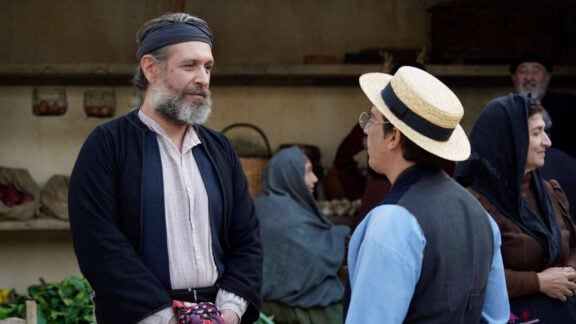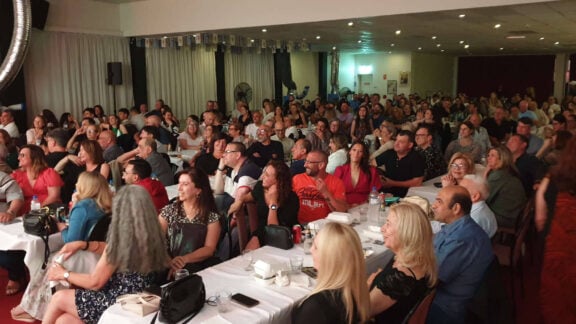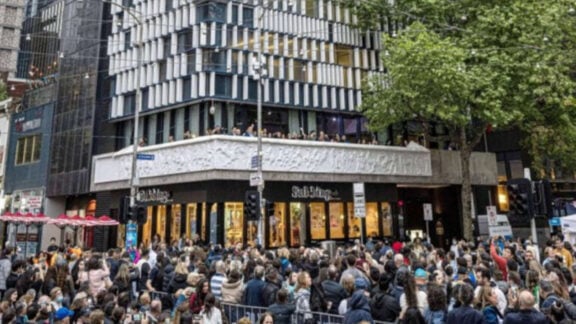Hopes for an early breakthrough in the Cyprus reunification talks were dashed in recent days, with Greek Cypriot and Greek leaders incensed by Turkish statements over the future of Turkish troops on the island, and border changes proposed by the Republic of Cyprus ruled out of hand by the Turkish Cypriot delegation. After more than a week of the UN-brokered talks in Geneva, where each side unveiled their vision for a unified country, despite many encouraging signs, the rival delegations appear diametrically opposed over vital detail of the two fundamental issues.
“A just solution to division means, first of all, eliminating what caused it, namely the occupation and presence of occupation forces”
The discussions at the conference between Greek Cypriot president Nikos Anastasiades and Turkish Cypriot leader Mustafa Akinci, aimed at creating a two-zone federation began on January 12, and are being conducted with officials from Cyprus’ ‘guarantor’ powers: Greece, Turkey and Britain. But within hours of the talks getting underway, seemingly entrenched positions slowed down any early breakthrough. Heading up Greece’s delegation in the first phase of the talks, Greek foreign minister Nikos Kotzias denounced the continued presence of Turkish troops on the island, after Turkish president Recep Tayyip Erdogan said in a televised appearance last weekend that a full withdrawal was “out of the question” unless Greece (which deploys its own military forces) did the same.
Rebuffing Turkey’s position, Minister Kotzias said there could be no end to the 43-year division of the island while 30,000 Turkish occupation troops remain. “A just solution to division means, first of all, eliminating what caused it, namely the occupation and presence of occupation forces,” he said, after leaving the conference earlier than expected. Turkish Cypriot leaders insist some degree of Turkish military presence is essential for its community to feel secure, despite President Anastasiades’ position that a timeline must be agreed for the withdrawal of all Turkish troops. Meanwhile, redrawing the map of Cyprus to identify the boundaries of the new zones, provided a second obstacle, with the rival delegations describing each other’s detailed proposals for border changes as “unacceptable”.
While Turkish Cypriot leaders have agreed in principle to return some of the land occupied in the 1974 invasion, maps presented to them by the Greek Cypriot side were dismissed, with one of the most contested locations being the once Greek Cypriot town of Morphou on the northwest coast. Before 1974, Morphou was an almost entirely Greek Cypriot community of some 9000 people. Today its population of more than 18,000 is largely made up of Turkish Cypriots. A potential touchstone for any agreement, President Anastasiades has vowed that no deal can be reached without the full return of Morphou, while some on the Turkish Cypriot side have said its return is non-negotiable The maps shared in the opening days of the talks will not be disclosed publicly, with the UN keen to encourage a compromise before any announcement on the make-up of potential new zones.
The talks continued in Mont Pelerin, overlooking Lake Geneva, on Wednesday and Thursday, minus the political heavyweights, with technical teams from both sides discussing security and guarantee issues. The report they will draft is likely to determine whether the Cypriot leaders and the foreign ministers of Greece, Turkey and Britain will reconvene to finalise an agreement, and when such a meeting could take place. A statement on Thursday from UN envoy Mr Espen Barth Eide said the technical meetings had identified “specific questions related to the issue of security and guarantees and the instruments needed to address them,” and that the meetings had been conducted in a “positive spirit”, with participants agreeing not to disclose details about their discussions, “as the proceedings of the conference have not yet concluded”.
The fate of any reunification deal, if reached, would be put to a final test at a referendum, which could take place as early as the European summer. Commenting on the talks, Cyprus expert and Director of the Centre for Dialogue at La Trobe University, Dr Michalis Michael, told Neos Kosmos:
“After 20 months of negotiations between two compatible and affable leaders – both of whom supported the Annan Plan for Cyprus in 2004 – now the various sides are getting down to the hard issues: territory and security. That includes disagreement over the frequency of the rotating presidency which, at the end of the day, is as much about the psychology and symbolism of security as the politics of the distribution of power.
“Despite the hype by the UN and others, it was inevitable that the two sides would disagree on the territorial maps. That they have agreed – within a margin of one percent – on the territorial criteria at Mont Pelerin, is in itself a breakthrough,” said the Melbourne-based academic.
“The same goes for security and guarantees which are canvassed for the first time since 2004. There are bound to be strong, even vehement, disagreements as we have now entered the minefield of each other’s ‘red lines’.
“Whether, the parties are able to remain calm, composed, and work through them to arrive at an amicable, acceptable and, dare I say fair, outcome for everyone, is the main challenge – not just for Cyprus, but also for Turkey and Greece and the international community.”
Michael Sweet is a contributing journalist to Neos Kosmos based in Malta -Twitter: mikesweet01








